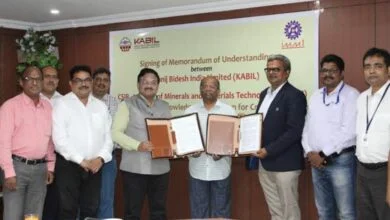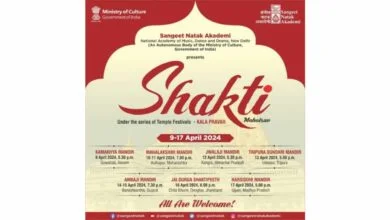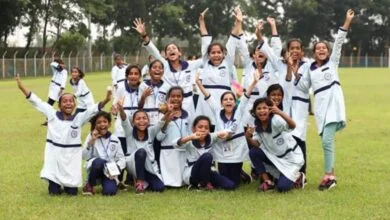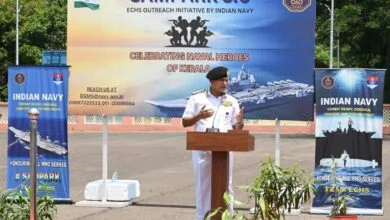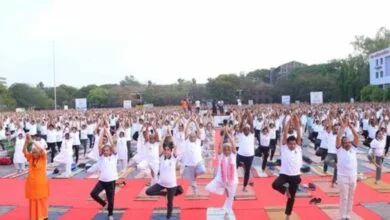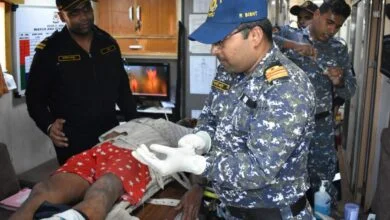Scientific Social Responsibility to create a new interface between science and society: DST Secretary

World Science Day for Peace and Development organized jointly by DST and UNESCO
November 13, 2020 (Delhi): Secretary, Department of Science and Technology (DST), Professor Ashutosh Sharma, highlighted that a policy on Scientific Social Responsibility (SSR) would be in place in the next few months to create new interfaces between science and society, at a webinar organised on the occasion of World Science Day.
“Connecting science to society can make S&T one of the strongest pillars for peace and development. Communication of science to society at large is a major challenge. Science needs to reach the masses so that it can be used as a major tool for peace and development,” he pointed out at the webinar on World Science Day for Peace and Development organised jointly by DST and UNESCO (United Nations Educational, Scientific and Cultural Organization).
Underlining the importance of equity and diversity in science and technology , Professor Sharma mentioned about the ten different programmes run by the DST like CURIE (Consolidation of University Research for Innovation & Excellence in Women Universities) and Vigyan Jyoti to create a level-playing field for women to encourage and help them make inroads into the field of science, technology and innovation.
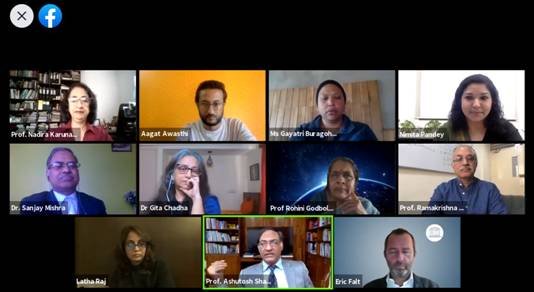
World Science Day, is celebrated on November 10. The theme this year being ‘Sciencefor and with Society’, DST jointly with UNESCO New Delhi, organized the webinar to acknowledge and embrace the essence of the theme keeping in mind the growing significance ofscience, technology and innovation in socio-economic, political and cultural spheres as the world grapples with the COVID-19 pandemic.
Eric Falt, Director, UNESCO, New Delhi, speaking on occasion said, “Science has been widely discussed in 2020 due to COVID-19. Science, technology and innovation has become the key for vaccines, monitoring health and even online classes. Equal access to knowledge is fundamental for peace and development, and it is important to help science, technology and innovation reach to masses”.
Dr Sanjay Mishra, Head – KIRAN Division, DST elaborated about DST’s KIRAN programme, which helps empowering women in science. He said, “Science plays a huge role in the growth and development of society. However, women’s presence in the field of science, technology and innovation is not optimal, and our department is running various programmes for empowering women scientists. KIRAN is one among them. We hope these women-centric programmes would help increase the number of women in science, technology and innovation”.
The session was followed by a panel discussion on women in STEM, focusing on the role of women insciencein bridging the gaps between scientific pursuits and societal good.The speakers included Prof Rohini Godbole, Professor, Centre for High Energy Physics, Indian Institute of Science, Bangalore, Prof Ramakrishna Ramaswamy, Visiting Professor, Department of Chemistry, IIT Delhi, Latha Raj, Program Director & Global Technical Eminence Leader, IBM Cloud & Cognitive Software, Prof Nadira Karunaweera, President, Sri Lanka National Chapter of Organisation for Women in Science for the Developing World, Aagat Awasthi, Programme Officer, UNESCO Kathmandu Office, Nepal, Gayatri Buragohain, Founder and Executive Director Feminist Approach to Technology, India and Dr Gita Chadha, Faculty Member, Department of Sociology, University of Mumbai.

